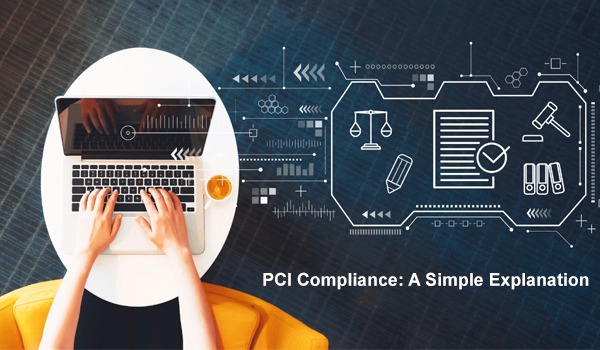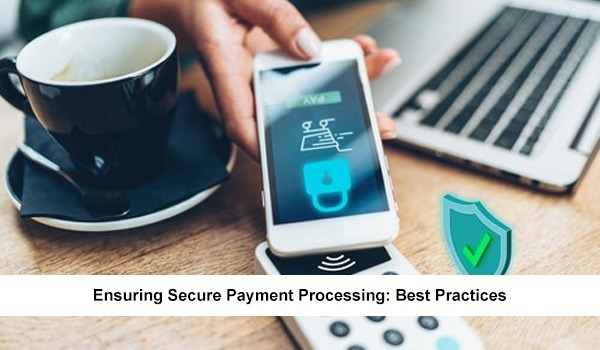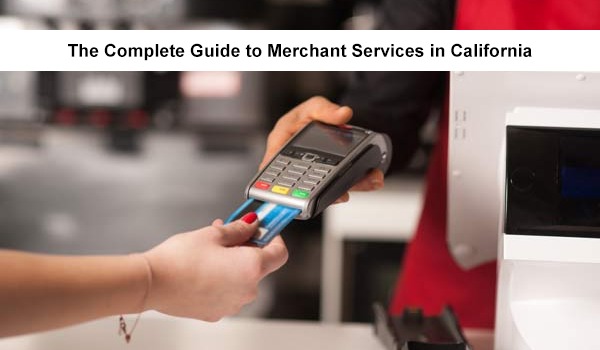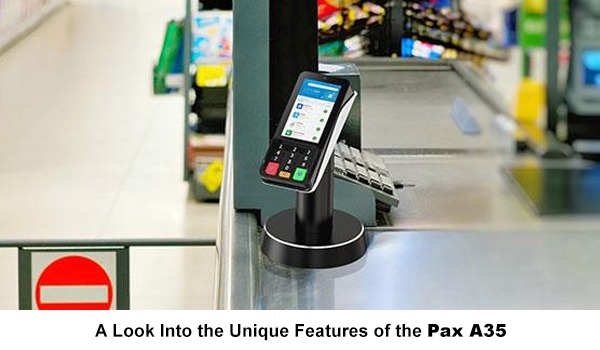
Demystifying PCI Compliance: A Simple Explanation
In today's digital age, ensuring the security of sensitive financial data is paramount for businesses, especially those handling card payments. PCI compliance is a cornerstone in safeguarding this information, yet it often needs to be understood. This article aims to unravel the complexities surrounding PCI compliance, offering a straightforward explanation of its significance, requirements, and implementation.
What is PCI Compliance?
PCI compliance, often referred to as Payment Card Industry Data Security Standard (PCI DSS) compliance, is a critical aspect of maintaining the security and integrity of cardholder data in today's digital payment landscape. It encompasses a comprehensive set of security standards and best practices established by major credit card companies, including Visa, Mastercard, American Express, Discover, and JCB International.
The primary objective of PCI compliance is to ensure the secure handling, processing, and storage of payment card information throughout the entire transaction lifecycle, from cardholder data entry to authorization and settlement. By adhering to PCI DSS requirements, businesses mitigate the risk of data breaches, unauthorized access, and fraudulent activities, thereby safeguarding both their interests and the trust of their customers.
PCI compliance standards are regularly updated and refined to address evolving cybersecurity threats and technological advancements in payment processing. Businesses subject to PCI DSS requirements must undergo periodic assessments and audits to validate their compliance status and identify any gaps or vulnerabilities that may pose risks to cardholder data security. Failure to achieve and maintain PCI compliance can result in severe consequences, including financial penalties, legal liabilities, and reputational damage.
Why is PCI Compliance Essential?
Maintaining PCI compliance is not merely a matter of ticking boxes on a regulatory checklist; it's a fundamental aspect of protecting both businesses and their customers in an increasingly interconnected and digital world. This article delves into the essential nature of PCI compliance, exploring why it's indispensable for businesses across various industries. From safeguarding sensitive data to meeting legal obligations and fostering trust, PCI compliance plays a pivotal role in ensuring the security, integrity, and reliability of payment card transactions. Let's explore further the reasons why PCI compliance is essential for businesses of all sizes and types.
- Data Security: PCI compliance helps businesses mitigate the risk of data breaches and unauthorized access to cardholder information, safeguarding both the business and its customers from financial losses and reputational damage.
- Legal Requirements: Many regulatory bodies and industry associations mandate PCI compliance for businesses that handle payment card data. Failure to comply with these requirements can result in severe penalties, fines, and legal repercussions.
- Customer Trust: Demonstrating PCI compliance signals to customers that their sensitive payment card information is handled with care and security, fostering trust and confidence in the business's integrity and reliability.
Key Components of PCI Compliance
When it comes to PCI compliance, understanding its key components is essential for businesses aiming to protect sensitive cardholder data and maintain regulatory compliance. These components serve as the building blocks of a robust security framework, ensuring the secure handling, processing, and storage of payment card information. In this section, we'll delve into the key components of PCI compliance, exploring the foundational elements that businesses must address to safeguard against data breaches, fraud, and unauthorized access. From securing network infrastructure to implementing stringent access controls and conducting regular vulnerability assessments, each component plays a critical role in fortifying the overall security posture of organizations handling payment card transactions.
- Secure Network: Implementing robust network security measures, such as firewalls, encryption, and access controls, to protect cardholder data from unauthorized access and cyber threats.
- Data Protection: Encrypting sensitive cardholder data both in transit and at rest, ensuring that it remains secure and unintelligible to unauthorized individuals or entities.
- Vulnerability Management: Regularly scanning and testing networks and systems for vulnerabilities, promptly addressing any identified weaknesses or security gaps to maintain a secure environment.
- Access Control: Restricting access to cardholder data on a need-to-know basis, implementing user authentication, and monitoring access to sensitive information to prevent unauthorized usage.
- Monitoring and Testing: Continuously monitoring and logging all access to cardholder data, as well as conducting regular security assessments and penetration tests to identify and address potential security risks.
Achieving and Maintaining PCI Compliance
Achieving and maintaining PCI compliance is a multifaceted endeavor that requires diligence, expertise, and ongoing commitment to security best practices. Businesses must proactively address various aspects of their operations to ensure adherence to the Payment Card Industry Data Security Standard (PCI DSS) and mitigate the risk of data breaches and non-compliance penalties. Here are five essential steps that businesses should take to achieve and maintain PCI compliance effectively:
- Understand Requirements: Familiarize themselves with the PCI DSS requirements applicable to their business size and industry, seeking guidance from reputable sources such as the PCI Security Standards Council.
- Implement Security Controls: Implement robust security controls and measures to address each PCI DSS requirement effectively, ensuring the protection of cardholder data across all systems and processes.
- Regular Assessments: Conduct regular assessments and audits to evaluate compliance with PCI DSS requirements, identifying areas for improvement and implementing corrective actions as necessary.
- Stay Updated: Stay informed about changes and updates to PCI DSS requirements, as well as emerging cybersecurity threats and best practices, to adapt security measures accordingly and maintain compliance.
- Work with Experts: Consider engaging qualified cybersecurity professionals or PCI compliance experts to assist with compliance efforts, provide guidance, and ensure adherence to industry best practices.
Benefits of PCI Compliance
PCI compliance offers a multitude of benefits to businesses, ranging from enhanced security and legal compliance to customer trust and competitive advantage. Here's a closer look at the advantages of PCI compliance:
- Enhanced Security: By implementing robust security measures and best practices, businesses can significantly reduce the risk of data breaches and cyber attacks, safeguarding sensitive cardholder information and preserving business continuity.
- Legal Compliance: Achieving PCI compliance helps businesses meet regulatory requirements and industry standards, reducing the likelihood of non-compliance penalties, fines, and legal consequences.
- Customer Trust and Confidence: Demonstrating commitment to PCI compliance instills trust and confidence in customers, reassuring them that their payment card information is handled securely and responsibly, leading to increased customer satisfaction and loyalty.
- Cost Savings: Investing in PCI compliance measures can ultimately lead to cost savings by mitigating the financial impact of data breaches, avoiding regulatory fines, and preserving the business's reputation and brand value.
- Competitive Advantage: Being PCI-compliant can serve as a competitive differentiator, setting businesses apart from non-compliant competitors and attracting customers who prioritize security and trustworthiness.
Conclusion
PCI compliance stands as a linchpin in the modern landscape of financial transactions, where the security of sensitive cardholder data is paramount. Beyond being a regulatory obligation, PCI compliance embodies a commitment to safeguarding the trust, security, and integrity inherent in payment card transactions. It serves as a shield against the pervasive threats of data breaches and fraud, offering businesses a robust framework to fortify their defenses and protect both their interests and those of their customers.
By embracing PCI compliance, businesses signal their dedication to upholding the highest standards of data security and privacy. Through diligent adherence to PCI requirements and implementation of best practices, organizations demonstrate their proactive approach to mitigating risks and preserving the confidentiality, integrity, and availability of cardholder data. This proactive stance not only instills confidence in customers but also strengthens the resilience and sustainability of businesses in an increasingly digital and interconnected world.
In essence, PCI compliance transcends mere regulatory compliance; it embodies a commitment to excellence, security, and trust in every payment card transaction. By integrating PCI compliance into their operational ethos, businesses not only safeguard sensitive data but also cultivate a culture of security, accountability, and integrity. In doing so, they fortify their foundations for sustainable growth and success, positioning themselves as trusted custodians of customer information in an evolving landscape of digital commerce.









